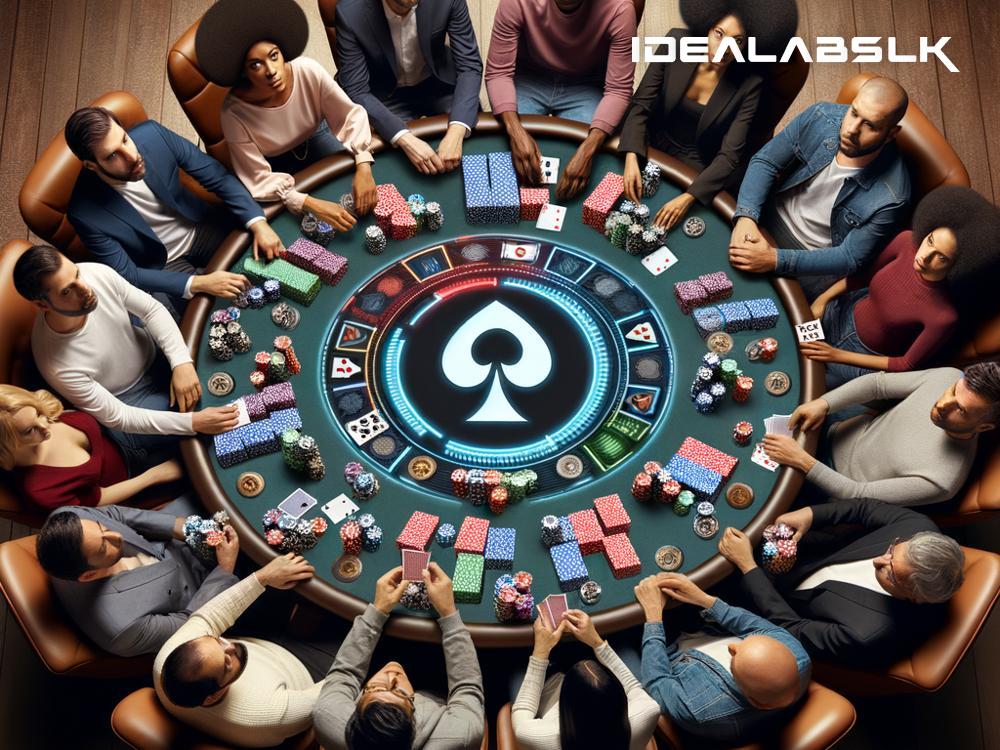How AI Bluffed Its Way to Victory: The Poker-Playing Robots
In a world where technology continues to shatter ceilings, artificial intelligence (AI) has marked its territory across various fields. From driving cars to recommending what movie to watch next, AI seems to be everywhere. But, its conquest didn’t just stop at tasks that require logic and patterns; it dared to challenge humans in realms governed by bluff, bet, and unpredictability - the game of Poker.
To many, Poker is not just a game of cards; it requires a deep understanding of strategies, an ability to read subtle cues or 'tells' from opponents, and, most importantly, the craftiness to bluff. It seemed like a domain secure from the reaches of cold, calculating AI. However, the narrative took a dramatic twist when AI not only entered the arena of Poker but emerged victorious, showcasing an ability to outwit human champions. Let's delve into how AI managed this feat that once seemed nearly impossible.
The Rise of the Poker-Playing Robots
The story of AI in Poker isn’t about a sudden uprising but a gradual, methodical advancement. Over the years, researchers and programmers have built and refined their AI models, with each version learning from its encounters. These AI systems didn't just understand the rules of Poker; they learned to strategize, adapt, and, most fascinatingly, bluff.
Breaking Down the Victory
-
Learning from Every Game: Unlike humans, AI systems can play millions of hands of Poker in a short span, learning and adjusting strategies with each game. Each hand provides data, feeding the AI's understanding and helping it refine its decision-making process. This relentless ability to learn and adapt gave AI a significant edge.
-
Mastering Bluffing: Bluffing, the most human element of Poker, was the biggest challenge and the most striking victory for AI. Through complex algorithms, AI learned not just when to bluff but also how to detect bluffs from opponents. It analyzed betting patterns, gauging when opponents were overconfident or underconfident about their hands.
-
Emotionless Play: A key advantage AI had over human players was its lack of emotion. It didn’t succumb to pressure, fatigue, or tilt—a psychological state where frustration leads to suboptimal play. This emotionless, methodical approach allowed AI to maintain a consistent strategy throughout long games.
-
Advanced Strategies: The AI, armed with its vast experience from simulated hands, brought strategies to the table that were incredibly advanced, some even unheard of by the pros. It calculated risks and rewards in ways humans found difficult to predict or counter.
The Implications of AI's Poker Victory
The success of AI in Poker isn’t just about the game; it’s a testament to how far AI has come in dealing with incomplete information and unpredictable scenarios. Poker is a game of skill, luck, and psychological warfare. Winning at Poker meant AI had reached a level where it could navigate complex human-like situations with remarkable proficiency.
The Human Side of the Story
While the victory of AI over humans in Poker might seem like a narrative of machines outsmarting humans, it’s essential to see the broader picture. The development of these AI systems pushes the boundaries of technology, offering valuable insights into decision-making and strategy that can be applied beyond the poker table.
Looking Ahead
The triumph of AI in Poker opens up a myriad of possibilities. From improving decision-making algorithms that can be used in real-world applications like financial markets and crisis management to advancing fields like robotics and virtual assistants, the implications are vast. It also paves the way for more sophisticated AI that can handle complex tasks involving human interactions, negotiations, and perhaps even diplomacy.
In Closing
The story of AI winning at Poker is a fascinating milestone in the journey of artificial intelligence. It’s a narrative that sheds light on the capabilities of AI in navigating human psychology, strategy, and unpredictability. As we move forward, the fusion of human ingenuity and AI’s analytical prowess promises to open new frontiers in technology, offering exciting prospects for the future.
In the end, the victory of AI in Poker isn't just about a game; it’s a herald of the new era of AI, showcasing a technological marvel capable of mastering the art of strategy, bluff, and unpredictability – elements that were once thought to be the exclusive domain of humans.

